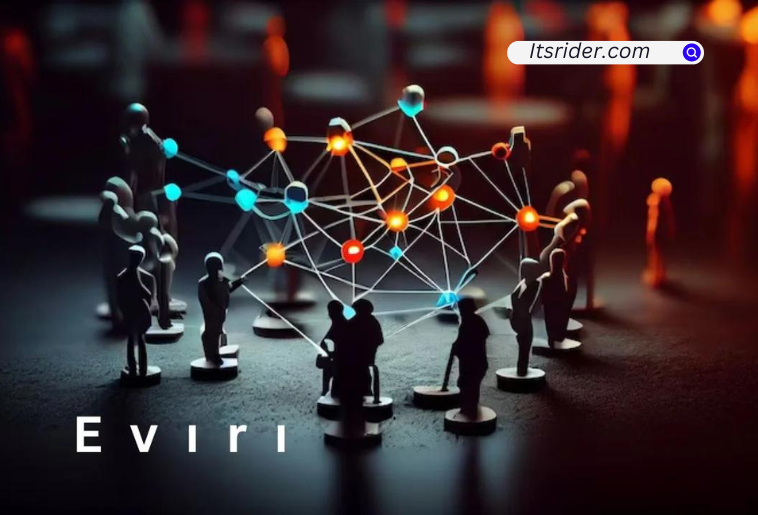Introduction
Evırı is an advanced industrial technology designed to enhance efficiency, productivity, and sustainability in various sectors. It combines artificial intelligence, machine learning, and the Internet of Things (IoT) to create a seamless, intelligent, and interconnected industrial ecosystem. This technology enables industries to optimize operations, reduce costs, and improve overall performance.
The modern industrial landscape is continuously evolving, driven by the integration of cutting-edge technologies and innovative processes. One of the most significant developments in this arena is the advent of Evırı, a groundbreaking technology that promises to reshape industries across the globe. This comprehensive guide explores the myriad facets of Evırı, from its core principles to its wide-ranging applications and future potential.
Read More: Sirler Mysteries of the Space Universe
The Core Principles of Evırı

Integration of AI and Machine Learning
At the heart of Evırı is the integration of artificial intelligence (AI) and machine learning (ML). These technologies enable systems to learn from data, predict outcomes, and make informed decisions autonomously. This capability is crucial for optimizing industrial processes, from manufacturing to logistics.
Internet of Things (IoT) Connectivity
Evırı leverages IoT to connect machines, devices, and systems, creating a network that facilitates real-time data exchange and communication. This connectivity allows for enhanced monitoring, control, and automation of industrial processes, leading to increased efficiency and reduced downtime.
Big Data Analytics
Big data analytics is a key component of Evırı, enabling industries to analyze vast amounts of data generated by IoT devices and sensors. This analysis provides valuable insights that drive informed decision-making, predictive maintenance, and continuous improvement of industrial processes.
Applications of Evırı in Various Industries
Manufacturing
In the manufacturing sector, Evırı transforms traditional production lines into smart factories. It enables real-time monitoring of machinery, predictive maintenance, and optimized resource allocation. This results in higher production efficiency, reduced operational costs, and improved product quality.
Energy Management
Evırı plays a crucial role in energy management by optimizing energy consumption and reducing waste. It integrates with smart grids and renewable energy sources, allowing industries to manage their energy use more effectively and sustainably.
Supply Chain and Logistics
The logistics industry benefits immensely from Evırı through improved supply chain visibility, route optimization, and inventory management. These enhancements lead to faster delivery times, lower transportation costs, and increased customer satisfaction.
Healthcare
In the healthcare sector, Evırı facilitates the efficient management of medical equipment, patient monitoring, and data analysis. This technology improves patient care, streamlines hospital operations, and supports the development of personalized treatment plans.
Read More: Leomorg A Pioneering Venture in Science and Technology
Agriculture
Evırı revolutionizes agriculture by enabling precision farming, which involves the use of IoT devices and sensors to monitor soil conditions, crop health, and weather patterns. This information helps farmers make data-driven decisions, increasing crop yields and reducing resource use.
Benefits of Implementing Evırı
Enhanced Operational Efficiency
The integration of Evırı leads to significant improvements in operational efficiency. Automated processes, predictive maintenance, and real-time data analytics reduce downtime and optimize resource utilization.
Cost Reduction
By streamlining operations and improving resource management, Evırı helps industries cut costs. Predictive maintenance reduces repair expenses, while optimized energy consumption lowers utility bills.
Improved Product Quality
Evırı enables continuous monitoring and quality control throughout the production process. This results in higher-quality products with fewer defects, enhancing customer satisfaction and brand reputation.
Sustainability and Environmental Impact
One of the key advantages of Evırı is its contribution to sustainability. By optimizing resource use and reducing waste, it helps industries minimize their environmental footprint and adhere to regulatory standards.
Challenges and Considerations
Implementation Costs
The initial investment required for implementing it can be substantial. Industries need to consider the costs of hardware, software, and training to ensure a successful deployment.
Data Security and Privacy
With the increased connectivity and data exchange facilitated by them, data security and privacy become critical concerns. Industries must implement robust cybersecurity measures to protect sensitive information and maintain compliance with regulations.
Workforce Adaptation
The adoption of Evırı requires a skilled workforce capable of managing and maintaining advanced technologies. This necessitates comprehensive training programs and a shift in workforce dynamics.
The Future of Evırı in Industrial Technology
Continued Advancements in AI and Machine Learning
As AI and ML technologies continue to advance, the capabilities of Evırı will expand. Enhanced algorithms and learning models will lead to even greater efficiencies and more sophisticated industrial applications.
Expansion of IoT Networks
The growth of IoT networks will further enhance the connectivity and data exchange facilitated by Evırı. This expansion will enable more comprehensive monitoring and control of industrial processes, driving innovation and efficiency.
Integration with Emerging Technologies
Evırı is poised to integrate with other emerging technologies, such as blockchain and augmented reality (AR). These integrations will unlock new possibilities for industrial applications, from secure supply chain management to immersive training experiences.
Conclusion
Evırı represents a transformative force in industrial technology, offering unparalleled benefits in terms of efficiency, cost reduction, and sustainability. As industries continue to embrace this technology, they will unlock new levels of productivity and innovation, paving the way for a more connected, intelligent, and sustainable future. The journey towards widespread adoption of it may present challenges, but the potential rewards make it a compelling proposition for industries across the globe.
